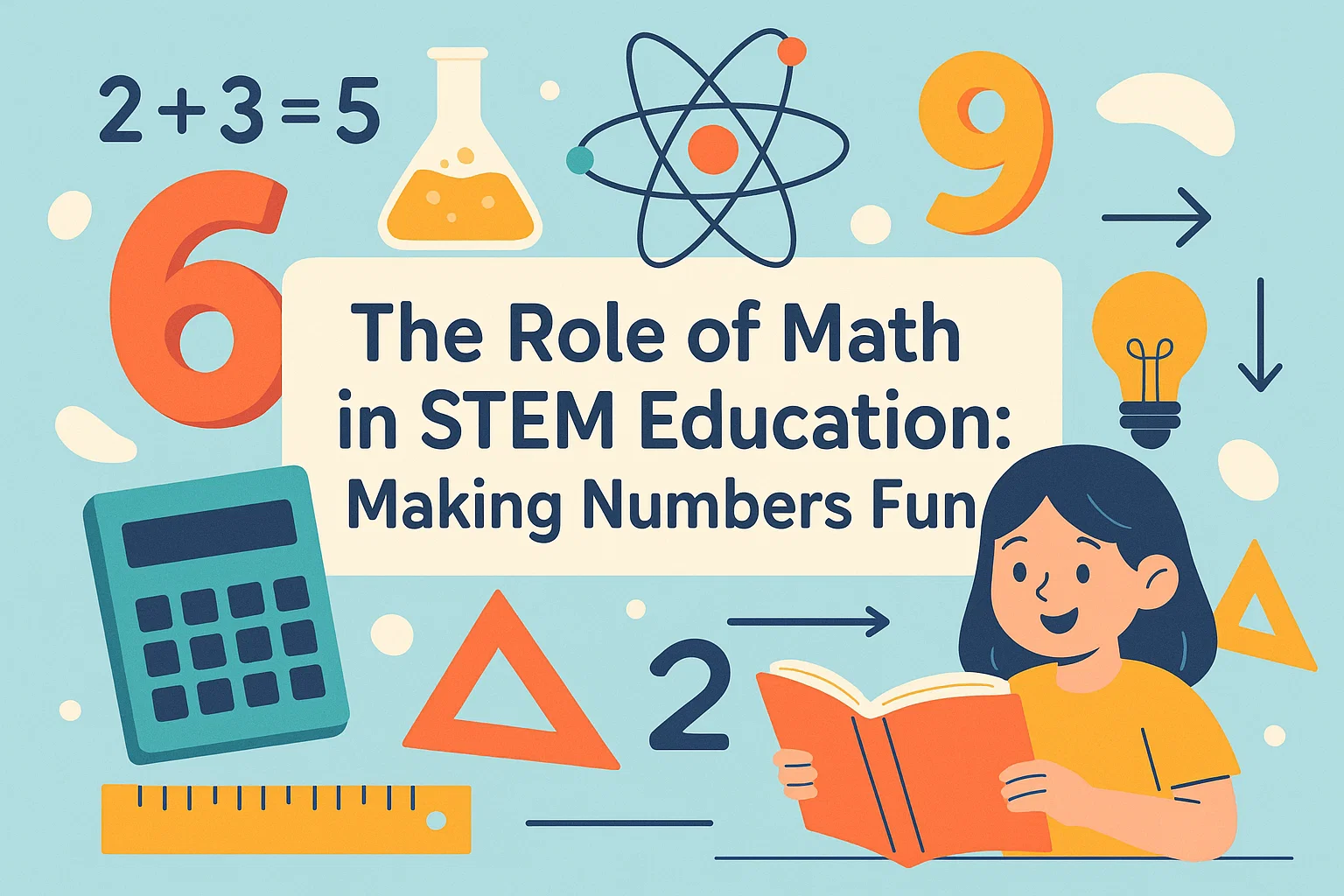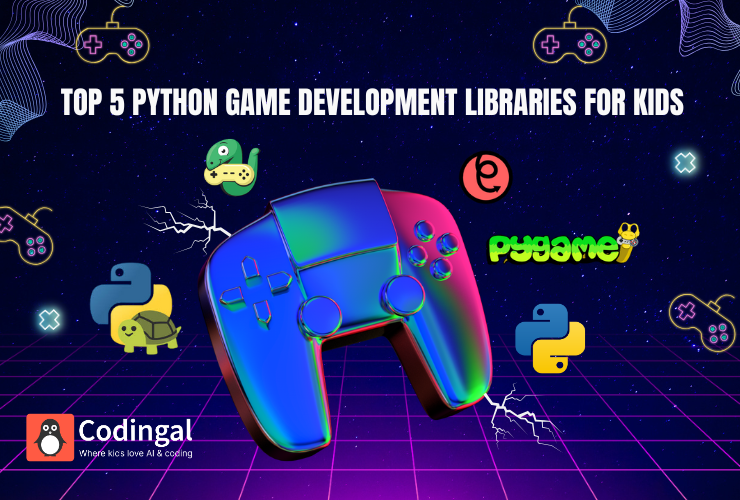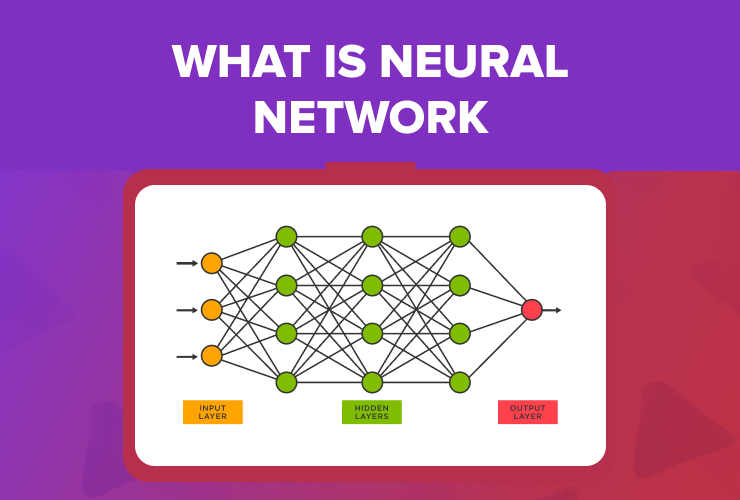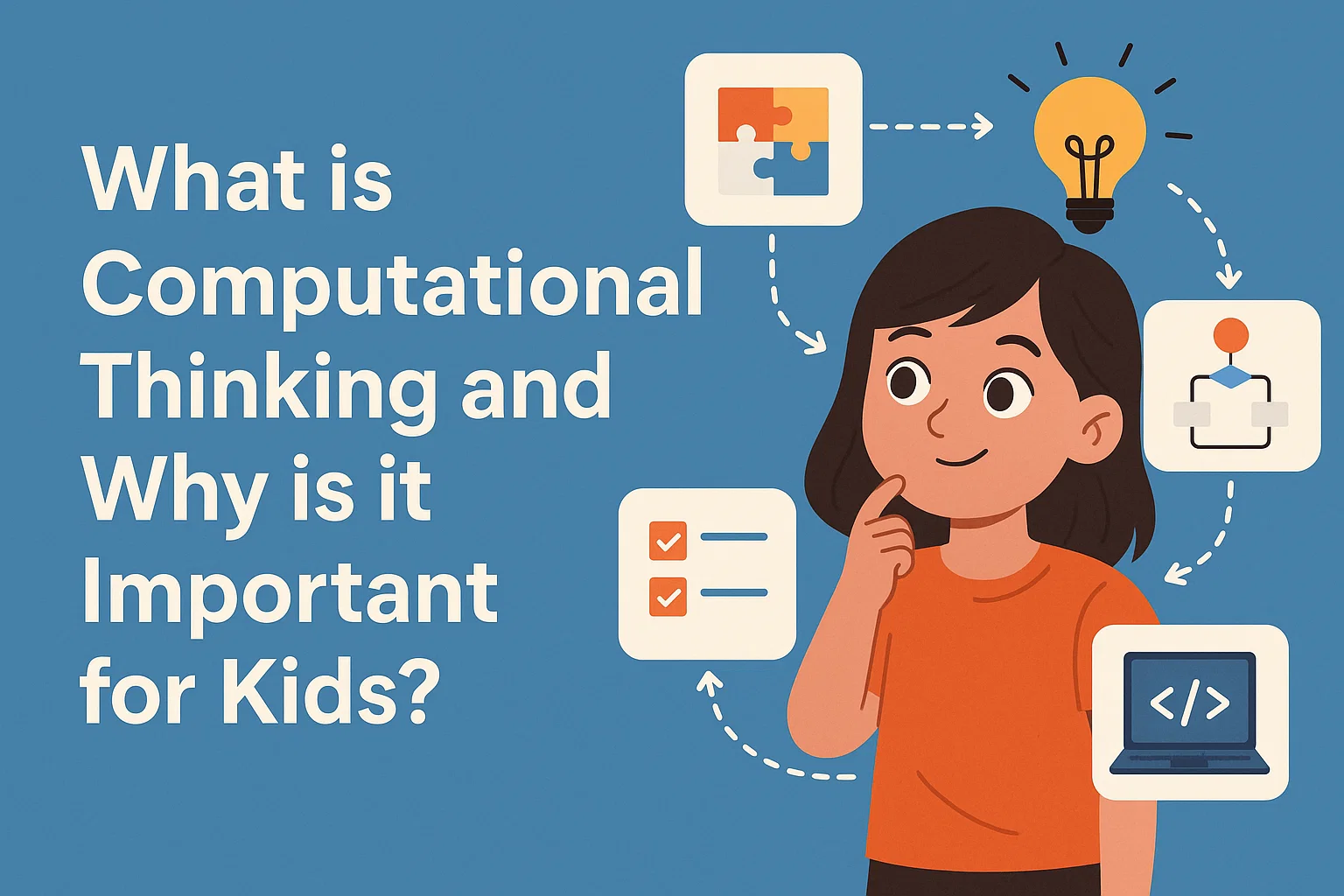Introduction
The landscape of STEM education is undergoing a revolutionary transformation, with project-based learning (PBL) emerging as the gold standard for engaging students and preparing them for real-world challenges. Unlike traditional lecture-based approaches, project-based learning immerses students in hands-on experiences that mirror the collaborative, problem-solving nature of modern STEM careers. Recent meta-analysis research demonstrates that project-based learning significantly improves students’ learning outcomes and positively contributes to academic achievement, affective attitudes, and thinking skills (Frontiers in Psychology). This pedagogical shift is particularly evident in coding and AI education, where platforms like Codingal are pioneering innovative approaches that combine rigorous curriculum design with real-world application.
Codingal, a Y Combinator-backed online coding and AI education platform, has positioned itself at the forefront of this educational revolution by offering live, interactive courses for K-12 students worldwide through a project-based curriculum accredited under global STEM standards (Codingal). With over 500,000 registered students across 70+ countries and a 4.8/5 average class rating, the platform demonstrates how project-based learning can scale effectively while maintaining educational quality (Codingal). The company’s approach goes beyond traditional coding instruction, helping kids build websites, apps, games, and AI projects while strengthening problem-solving and creative skills through hands-on experience.
The Science Behind Project-Based Learning in STEM
Research-Backed Benefits
The effectiveness of project-based learning in STEM education is supported by extensive research spanning two decades. A comprehensive meta-analysis of 66 experimental and quasi-experimental research papers revealed that project-based learning significantly improved students’ learning outcomes across multiple dimensions (PubMed). The study found that PBL positively contributed to academic achievement, affective attitudes, and thinking skills, with academic achievement showing the most significant improvement.
Project-based learning operates on the principle of inquiry-based learning that focuses on the concepts and principles of a subject, using multiple resources and continuous inquiry-based learning activities in real-world situations (Frontiers in Psychology). This approach aims to cultivate 21st-century skills, especially higher-order thinking skills, which occur based on problem-solving in real-world situations and open environments.
Impact on Student Self-Efficacy
Specific research in STEM education has shown remarkable results for student confidence and capability. A study published in the Journal of Turkish Science Education investigated the impact of STEM Project-Based Learning on self-efficacy among high-school physics students using Bandura’s social cognitive theory (SSOAR). The quasi-experimental research method demonstrated that STEM PjBL significantly outperformed conventional teaching methods in building student confidence and competence.
The research indicates that project-based learning is gaining recognition for its advantages over traditional teaching and learning models, particularly in developing students’ future-oriented abilities such as creative thinking, problem raising, problem solving, critical thinking, communication, and collaboration (Frontiers in Psychology).
Codingal’s Innovative Approach to Project-Based Learning
Curriculum Design Philosophy
Codingal has developed a unique and engaging coding curriculum tailored to the learning style of every child, designed around Bloom’s Taxonomy, a standard guideline for K-12 content development (Codingal Curriculum). This framework includes six stages of learning: remember, understand, apply, analyze, evaluate, and create. The platform has also developed an in-house BIDE (Broad, Inspiring, Deep & Efficient) model to cater to the unique learning abilities of each child.
The curriculum incorporates the STEAM learning methodology, ensuring that students not only learn technical skills but also develop critical thinking, creativity, and problem-solving abilities (Codingal Curriculum). This comprehensive approach aligns perfectly with the research-backed benefits of project-based learning, creating an environment where students can thrive through hands-on experience.
Mastery Programs: Grandmaster and Prodigy Tracks
Codingal’s flagship offerings include comprehensive mastery programs designed to take students from beginners to advanced practitioners. The Coding Grandmaster course is designed for kids who want to master the art of coding, suitable for grades 1-10, and includes 144 lessons with over 350 activities (Codingal Courses). This extensive program demonstrates the platform’s commitment to deep, project-based learning that builds competency over time.
The platform offers a wide range of specialized courses including Scratch Programming, Python for Kids, AI & Machine Learning Courses, App Development Courses, Web Development Courses, Game Development Courses, and Data Science for Kids (Codingal). Each course is structured around project-based learning principles, ensuring students create tangible outputs while mastering fundamental concepts.
Real-World Project Examples and Applications
Animation and Creative Projects
One of Codingal’s standout offerings is its Animation course, which exemplifies the power of project-based learning in creative STEM fields. The course uses platforms like Sprite Lab, Play Lab, Game Lab, and Scratch, designed for students from Grade 1-12 (Codingal Animation). Students engage in over 100 activities and projects, creating animated stories, interactive games, and digital art while learning fundamental programming concepts.
The animation course demonstrates how project-based learning can make abstract programming concepts tangible and engaging. Students don’t just learn about loops and conditionals; they use these concepts to create characters that move, interact, and tell stories. This approach aligns with research showing that coding applications are the backbone of modern technology and have various real-life applications (JetLearn).
Game Development and Interactive Media
Codingal’s game development courses, including specialized tracks in Pygame and Roblox & Lua coding, showcase how project-based learning can engage students in complex problem-solving scenarios (Codingal Pygame). Students create complete games, learning not just programming syntax but also game design principles, user experience considerations, and project management skills.
These projects require students to integrate multiple STEM disciplines: mathematics for game physics, computer science for programming logic, engineering for system design, and art for visual elements. This interdisciplinary approach reflects the real-world nature of modern technology projects and prepares students for collaborative work environments.
AI and Machine Learning Projects
As artificial intelligence becomes increasingly important across industries, Codingal’s AI and Machine Learning courses provide students with hands-on experience in cutting-edge technologies. The platform recognizes that AI is a groundbreaking force transforming industries and redefining digital innovation (Baveling). Through project-based learning, students don’t just study AI concepts; they build AI applications, train machine learning models, and explore the ethical implications of artificial intelligence.
These advanced projects prepare students for a future where AI literacy will be as fundamental as traditional literacy. By engaging with real AI tools and frameworks, students develop both technical skills and critical thinking abilities necessary to navigate an AI-driven world.
The Effectiveness of Codingal’s Project-Based Approach
Student Engagement and Retention
The effectiveness of Codingal’s project-based approach is evident in its impressive student metrics. With over 500,000 registered students across 70+ countries and consistently high ratings of 4.8/5 stars and 4.7/5 stars from different sources, the platform demonstrates that project-based learning can achieve both scale and quality (Codingal). These metrics suggest that students find the project-based approach more engaging and valuable than traditional instruction methods.
The platform’s success aligns with research findings that project-based learning significantly improves student motivation and knowledge retention. When students work on projects that have personal meaning and real-world applications, they develop deeper understanding and maintain interest over longer periods.
Personalized Learning Through Projects
Codingal’s approach to project-based learning is enhanced by its personalized instruction model. Each class is a 1:1 45-minute session with an expert Computer Science teacher, allowing for customized project guidance and immediate feedback (Codingal Animation). This personalized approach ensures that projects are appropriately challenging for each student’s skill level while maintaining the collaborative and inquiry-based nature of effective PBL.
Students receive monthly progress reports and have access to unlimited 1:1 live doubt sessions with instructors, creating a support system that helps them successfully complete complex projects (Codingal Animation). This level of support is crucial for project-based learning, where students may encounter unexpected challenges that require expert guidance.
Certification and Recognition
The platform’s commitment to quality is reflected in its accreditation and certification processes. Students receive STEM.org accredited certificates and specialized expert certificates upon completion of courses, providing formal recognition of their project-based learning achievements (Codingal Animation). This certification system validates the educational value of project-based learning and provides students with credentials that demonstrate their practical skills.
Industry Context and Market Validation
Growing Demand for Project-Based STEM Education
The coding education market is experiencing significant growth and transformation, with project-based approaches becoming increasingly valued. Recent industry developments, such as CodeHS acquiring Tynker for $2.2 million following Byju’s bankruptcy proceedings, highlight the ongoing consolidation and evolution in the coding education space (EdWeek Market Brief). This market activity underscores the importance of sustainable, effective educational approaches like project-based learning.
Codingal’s position as a Y Combinator-backed company with $1.2M in seed funding from Rebright Partners, GSF & Java Capital demonstrates investor confidence in project-based coding education (Codingal). The platform’s mission to build the world’s largest and most-loved programming school for kids, powered by expert instructors and AI tutors, reflects the industry’s recognition that project-based learning is essential for effective STEM education.
Competitive Advantages of Project-Based Learning
Codingal’s project-based approach provides several competitive advantages in the crowded coding education market. Unlike platforms that focus primarily on syntax and theoretical concepts, Codingal emphasizes practical application through real projects (Codingal vs WhiteHat Jr). This approach better prepares students for real-world programming challenges and creates more engaging learning experiences.
The platform’s comprehensive approach, covering foundational block-based coding through advanced topics like data science and Olympiad algorithms, demonstrates how project-based learning can scale across skill levels and age groups (Codingal). Students progress through increasingly complex projects, building both technical skills and confidence.
Implementation Strategies for Effective Project-Based Learning
Designing Meaningful Projects
Effective project-based learning requires careful project design that balances educational objectives with student interest and real-world relevance. Codingal’s approach demonstrates several key principles for successful project design. Projects should be authentic, addressing real problems or creating useful applications that students can share with others. The platform’s emphasis on helping kids build websites, apps, games, and AI projects ensures that student work has tangible value beyond the classroom (Codingal).
Projects should also be appropriately complex, requiring students to integrate multiple concepts and skills while remaining achievable within the given timeframe. Codingal’s curriculum structure, with over 350 activities in the Grandmaster course, shows how projects can be scaffolded to build complexity gradually (Codingal Courses).
Assessment and Feedback in Project-Based Learning
Traditional assessment methods often fall short in project-based learning environments, where the process is as important as the final product. Codingal addresses this challenge through continuous assessment and personalized feedback. The platform’s 1:1 instruction model allows teachers to observe student problem-solving processes, provide real-time guidance, and assess both technical skills and soft skills like persistence and creativity (Codingal Animation).
Monthly progress reports provide structured feedback on student development, while the availability of unlimited doubt sessions ensures that students receive support when they encounter challenges (Codingal Animation). This comprehensive support system is essential for successful project-based learning, where students may face unexpected obstacles that require expert guidance.
Technology Integration and Tools
Successful project-based learning in STEM requires appropriate technology tools and platforms. Codingal’s use of diverse programming environments, from visual programming languages like Scratch to professional development tools like Python and Java, demonstrates how technology can support project-based learning across different skill levels (Codingal Java).
The platform’s integration of various tools and platforms allows students to experience the full spectrum of modern software development, from initial concept to final deployment. This comprehensive approach prepares students for real-world development environments where they will need to work with multiple tools and technologies.
Future Trends and Implications
AI-Enhanced Project-Based Learning
The integration of artificial intelligence into project-based learning represents a significant opportunity for enhancing educational outcomes. Codingal’s mission includes being powered by AI tutors, suggesting the platform is exploring how AI can support project-based learning (Codingal). AI can provide personalized project suggestions, real-time code analysis, and adaptive feedback that helps students overcome challenges more effectively.
As AI tools become more sophisticated, they can serve as intelligent tutoring systems that understand individual student learning patterns and provide customized support for complex projects. This technology-enhanced approach to project-based learning could significantly improve learning outcomes while reducing the burden on human instructors.
Scaling Project-Based Learning Globally
Codingal’s success in reaching over 500,000 students across 70+ countries demonstrates that project-based learning can be scaled globally while maintaining quality (Codingal). This global reach is particularly important for STEM education, where students in different regions may have varying access to traditional educational resources.
The platform’s online delivery model, combined with personalized instruction and project-based curriculum, shows how technology can democratize access to high-quality STEM education. As internet connectivity improves globally, project-based learning platforms like Codingal can reach even more students who might otherwise lack access to advanced STEM education.
Industry Partnerships and Real-World Connections
The future of project-based learning in STEM education will likely involve stronger connections between educational platforms and industry partners. Codingal’s hosting of dozens of hackathons and Olympiad-style challenges annually demonstrates how educational platforms can create authentic connections to the broader technology community (Codingal). These events provide students with opportunities to showcase their projects and receive feedback from industry professionals.
School partnerships and curriculum licensing, as offered by Codingal, represent another avenue for expanding the reach of project-based learning (Codingal). By working with traditional educational institutions, project-based learning platforms can influence broader educational practices and help more students benefit from hands-on STEM education.
Overcoming Challenges in Project-Based Learning Implementation
Resource and Time Management
One of the primary challenges in implementing project-based learning is the increased demand for resources and time compared to traditional instruction methods. Projects require more preparation, ongoing support, and flexible scheduling to accommodate the iterative nature of real-world problem-solving. Codingal addresses these challenges through its structured approach to curriculum design and instructor support.
The platform’s curriculum, mapped to the K-12 Computer Science Framework and CSTA standards, ensures that projects align with educational objectives while providing clear progression paths (Codingal). This alignment helps educators justify the time investment in project-based learning by demonstrating clear educational outcomes.
Maintaining Academic Rigor
Critics of project-based learning sometimes worry that hands-on approaches may sacrifice academic rigor for engagement. However, research demonstrates that well-designed project-based learning can actually enhance academic achievement while improving student motivation (PubMed). Codingal’s approach demonstrates how project-based learning can maintain high academic standards through careful curriculum design and expert instruction.
The platform’s accreditation under global STEM standards and its comprehensive assessment system ensure that students master fundamental concepts while engaging in practical projects (Codingal). This combination of rigor and engagement represents the best of both traditional and progressive educational approaches.
Supporting Diverse Learning Styles
Project-based learning must accommodate diverse learning styles and abilities to be truly effective. Codingal’s BIDE model (Broad, Inspiring, Deep & Efficient) specifically addresses this challenge by providing multiple pathways for student engagement and success (Codingal Curriculum). The platform’s personalized instruction model allows teachers to adapt projects to individual student needs and interests.
The variety of project types offered by Codingal, from visual animation projects to complex AI applications, ensures that students with different interests and strengths can find engaging ways to learn STEM concepts (Codingal Animation). This diversity is essential for inclusive STEM education that serves all students effectively.
Conclusion
Project-based learning represents a fundamental shift in STEM education, moving from passive consumption of information to active creation and problem-solving. The research evidence overwhelmingly supports the effectiveness of this approach, with studies showing significant improvements in academic achievement, student motivation, and 21st-century skills development (Frontiers in Psychology). Codingal’s success in implementing project-based learning at scale, serving over 500,000 students across 70+ countries with consistently high satisfaction ratings, demonstrates that this approach can be both effective and scalable (Codingal).
The platform’s comprehensive approach, combining rigorous curriculum design with personalized instruction and real-world projects, provides a model for how project-based learning can transform STEM education (Codingal). From animation and game development to AI and machine learning, Codingal’s diverse project offerings show how students can engage with cutting-edge technologies while building fundamental skills and knowledge.
As we look toward the future of education, project-based learning will likely become even more important as the pace of technological change accelerates and the demand for creative problem-solvers increases. Educational platforms like Codingal, with their focus on hands-on learning and real-world application, are not just preparing students for current STEM careers but are helping to develop the next generation of innovators and leaders who will shape our technological future. The evidence is clear: project-based learning is not just a trend in STEM education—it is the future, and platforms like Codingal are leading the way in making this future accessible to students worldwide.
Frequently Asked Questions
What is project-based learning and why is it effective for STEM education?
Project-based learning (PBL) is an inquiry-based learning model that focuses on real-world problem-solving through hands-on projects. Research shows PBL significantly improves students’ learning outcomes, academic achievement, and thinking skills compared to traditional teaching methods. It cultivates 21st-century skills like creative thinking, problem-solving, and collaboration that are essential for STEM careers.
How does Codingal’s curriculum implement project-based learning principles?
Codingal’s curriculum is designed around Bloom’s Taxonomy and their proprietary BIDE model (Broad, Inspiring, Deep & Efficient) to cater to each child’s unique learning abilities. Their courses include over 350 activities and hands-on projects where students create apps, websites, and games. This approach moves beyond traditional coding lessons to engage students in real-world application of programming concepts.
What are the proven benefits of project-based learning in STEM subjects?
A comprehensive meta-analysis of 66 research studies over 20 years found that project-based learning significantly improved students’ academic achievement, affective attitudes, and thinking skills. Specifically in STEM, PBL helps students develop higher-order thinking skills, problem-solving abilities, and better understanding of complex concepts through practical application and collaborative learning experiences.
How does project-based learning prepare students for future careers in technology?
Project-based learning mirrors the collaborative, problem-solving nature of modern technology careers by engaging students in real-world challenges. Students develop critical 21st-century skills including creative thinking, communication, and collaboration while working on authentic projects. This hands-on approach better prepares them for the dynamic, innovation-driven technology industry compared to traditional lecture-based education.
What makes Codingal’s mastery programs different from other coding education platforms?
Codingal’s mastery programs stand out through their comprehensive project-based approach and personalized curriculum design. Unlike competitors, Codingal offers courses suitable for grades 1-10 with 144 lessons and over 350 activities, all built around their BIDE model. Their curriculum emphasizes creating real applications rather than just learning syntax, helping students master coding through practical project development.
How can schools and educators implement project-based learning in their STEM programs?
Successful PBL implementation requires shifting from traditional lecture-based teaching to facilitating student-driven inquiry and collaboration. Educators should design authentic projects that connect to real-world problems, provide scaffolding for complex tasks, and create opportunities for peer collaboration. Research shows effectiveness varies by factors like group size, class size, and experimental period, so gradual implementation with proper training is recommended.
Sources
- https://www.codingal.com/
- https://marketbrief.edweek.org/strategy-operations/coding-provider-tynker-sold-for-2-1m-as-byjus-bankruptcy-plays-out/2025/06
- https://pubmed.ncbi.nlm.nih.gov/37564309/
- https://www.baveling.com/post/codepal-ai-review
- https://www.codingal.com/courses/
- https://www.codingal.com/curriculum/
- https://www.codingal.com/en-us/
- https://www.codingal.com/en-us/codingal-vs-whitehatjr/
- https://www.codingal.com/en-us/courses/animation/
- https://www.codingal.com/en-us/courses/java/
- https://www.codingal.com/en-us/courses/pygame/
- https://www.frontiersin.org/journals/psychology/articles/10.3389/fpsyg.2023.1202728/full
- https://www.jetlearn.com/blog/how-programming-solves-real-problems













